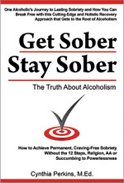Food Addiction
Food addiction operates on the same principles as addiction to drugs and alcohol, and the drug and alcohol addicted often have a variety of addictions to food. If this issue is left unaddressed, it leaves the individual in recovery at high risk of relapse because it often contributes to cravings for the substance of choice. At the very least, they will continue to feel like they have a monkey on their back and experience a wide range of psychiatric symptoms or conditions that lowers their quality of recovery and be at risk for many medical conditions as well like heart disease, obesity, type 2 diabetes, and autoimmune disorders.
As you have learned on the pages of this website, the root of drug and alcohol addiction lies in disrupted or depleted neurotransmitters in the brain, most commonly, dopamine, endorphins, serotonin and GABA. Drugs and alcohol mimic the effects of our neurotransmitters, which leads to depletion and then dependence upon the substance of choice to replace the neurotransmitter.
Certain foods (particularly sugar, grains, dairy, chocolate, caffeine and any high-glycemic index food) cause a surge in the neurotransmitters dopamine, serotonin, endorphins and GABA just like drugs (heroin, alcohol, cocaine etc.) do, which leads to cravings for more. The higher the surge in neurotransmitters that is produced, the more intense the drive will be to consume more. When these surges occur, it can lead to cravings for the substance of choice, since it is essentially affecting the brain in the same manner.
For example, when we eat, dopamine is released; because it is used to provide us with pleasure so that we will be motivated to feed ourselves in the future, which ensures we will survive. If a lot of dopamine is released, people will eat more because there is overstimulation of the dopamine pathway. Or if not enough dopamine is released, because they have poorly functioning or not enough D2 receptors, they will eat more as well since they didn't get enough stimulation. Both lead to food addiction.
Some foods like sugar, wheat, barley, rye and oats, dairy, chocolate, and coffee contain substances that get broken down into opiate-like neuropeptides called exorphins. These substances react with opiate receptors in the brain and mimic the effect of opiate drugs in the brain, like heroin and morphine, causing disturbance in mood, thought and behavior. When these foods are eaten, they can trigger cravings for your substance of choice.
Not everyone is vulnerable to the psychotropic effects of exorphins, but the drug and alcohol addicted frequently are. Exorphins are problematic when an individual is deficient in a digestive enzyme called DPP IV, has insufficient levels of friendly flora in the gut, chronic stress, environmental toxins, a pre-existing issue with neurotransmitter depletion or imbalances, or other unknown reasons.
Grains can also have an excitoxic effect on some people by forming excessively high levels of glutamate that lead to excessive stimulation of brain cells. This results in a wide array of neurological symptoms like anxiety, hyperactivity, insomnia, attention deficit and more and may lead to cravings for alcohol or the substance of choice to self-medicate.
Additionally, many people have sensitivities to foods that are similar to an allergy, which can have a psychotropic affect as well. In the advanced stage of a food sensitivity, the individual craves that particular food and it can affect the brain just like a drug, which can then result in food addiction and lead to cravings for the substance of choice and relapse.
Cheese and chocolate contain an amphetamine-like substance called phenylalanine that can mimic amphetamines, and coffee contains a variety of mind-altering substances that overstimulate dopamine and acetylcholine and inhibit GABA.
Furthermore, sugar and starchy carbohydrates are addictive by nature, because that is how they propagate their species. And, when you consume carbohydrates your blood sugar levels skyrocket, which triggers your body to release high levels of insulin to bring your blood sugar levels down. However, high levels of insulin will bring your blood sugar crashing down too fast and then there is no glucose available for your brain, which it needs to function. Therefore, the brain will send out a message that you should eat something sweet in order to bring the blood sugar levels up immediately, so cravings for sugar and carbs develop. As long as you are eating carbohydrates this vicious cycle will ensue.
High levels of insulin also lower your hormone called leptin, which is the hormone that turns of your hunger and increases another hormone called ghrelin, which is the hormone that tells you you're hungry. When leptin is low and ghrelin is high, then your appetite increases and you will crave things like sugar, carbs, caffeine, chocolate, grains etc., because your brain never gets the message that it is full and it seeks quick energy.
Many people will not realize they have a food addiction until after they get off the drugs and alcohol, because once these substances are out of the system, then their addiction to food becomes more apparent as they begin to use it to replace the drugs and alcohol.
Cravings for the food or foods of choice will occur just like they do for any other substance. Additionally, the food addicted will lie, cheat, sneak, and steal for their addiction just like a drug addict. They will make excuses, deny, justify, blame and continue to consume their substance even in the face of severe consequences like depression, anxiety, type 2 diabetes, heart disease and even death. Just like a drug addict, the individual may get up in the middle of the night and go out to get their fix if there isn't any in the house and will engage in uncontrollable binges.
I work with people all the time who tell me they need to change their diet because they were told they are borderline type 2 diabetes or could die of heart disease, but they will continually find excuses for why they can't do it and continue to eat the foods. I've had people tell me that life isn't worth living if they can't eat sugar.
Not only that, when the addictive food is removed from the diet, there will be a period of significant withdrawal that can be just as severe as withdrawal from drugs and alcohol including shaking, anxiety, irritability, impaired vision, sweating, headache, dizziness, increased heart beat, weakness, fatigue and more.
It's also important to be aware that just looking at certain kinds of foods, or pictures of these types of foods, can activate the brain in the same way. Therefore, it may be necessary in the early stages of recovery for food addiction to refrain from looking at them, or cookbooks, or websites the display enticing "food porn." When dopamine is activated, your brain is hard-wired to become motivated to seek out the food.
For example, even though I have more than 25 years of recovery, when I go to Pinterest and look at recipe profiles, my brain gets way too stimulated even though I'm looking at healthier dessert recipes. I start wanting all those things I see and my brain just feels overwhelmed with stimulus. So I don't visit those kinds of sites very often, because I just don't like the way they make my brain feel. Many people report that this kind of "food porn" can lead to relapse.
As you can see, there are many complex and interconnected mechanisms of action that come into play when dealing with food addiction, but it can be easily overcome when one follows the right diet. You can learn more about the specifics of what diet is needed to maintain sobriety regardless of your addiction in my Diet for Sobriety eBook, which is part of my Clean and Sober for Life self-help program. However, in a nutshell, you eliminate foods that cause a spike in insulin and neurotransmitters and eat foods that promote stability in blood sugar and brain chemistry like meat, fish, eggs, low-carb vegetables, and a small amounts of nuts, seeds and low-sugar fruit.
In order for the alcohol and drug addicted to achieve and maintain life-long and craving-free sobriety, they must address their food addictions. Fortunately, the majority of foods that perpetuate addiction are not healthy for you anyhow in many other ways. They are simply not supposed to be part of the diet to begin with and you will be better off without them.
References
Dr. James Greenblatt, Neuroactive Peptides from Common Foods Contribute to Psychiatric Disorders. Great Plains Laboratory. Webinar. vimeo.com/19231456
Gant, Charles, M.D. Webinar, Endocrine Stress #1. July 8, 2010. www.cegant.com/webinars
———. Webinar, Endocrine (Adrenal) Stress #2. July 15, 2010.
———. Webinar, Endocrine Stress, Carbopathy July 2010.


